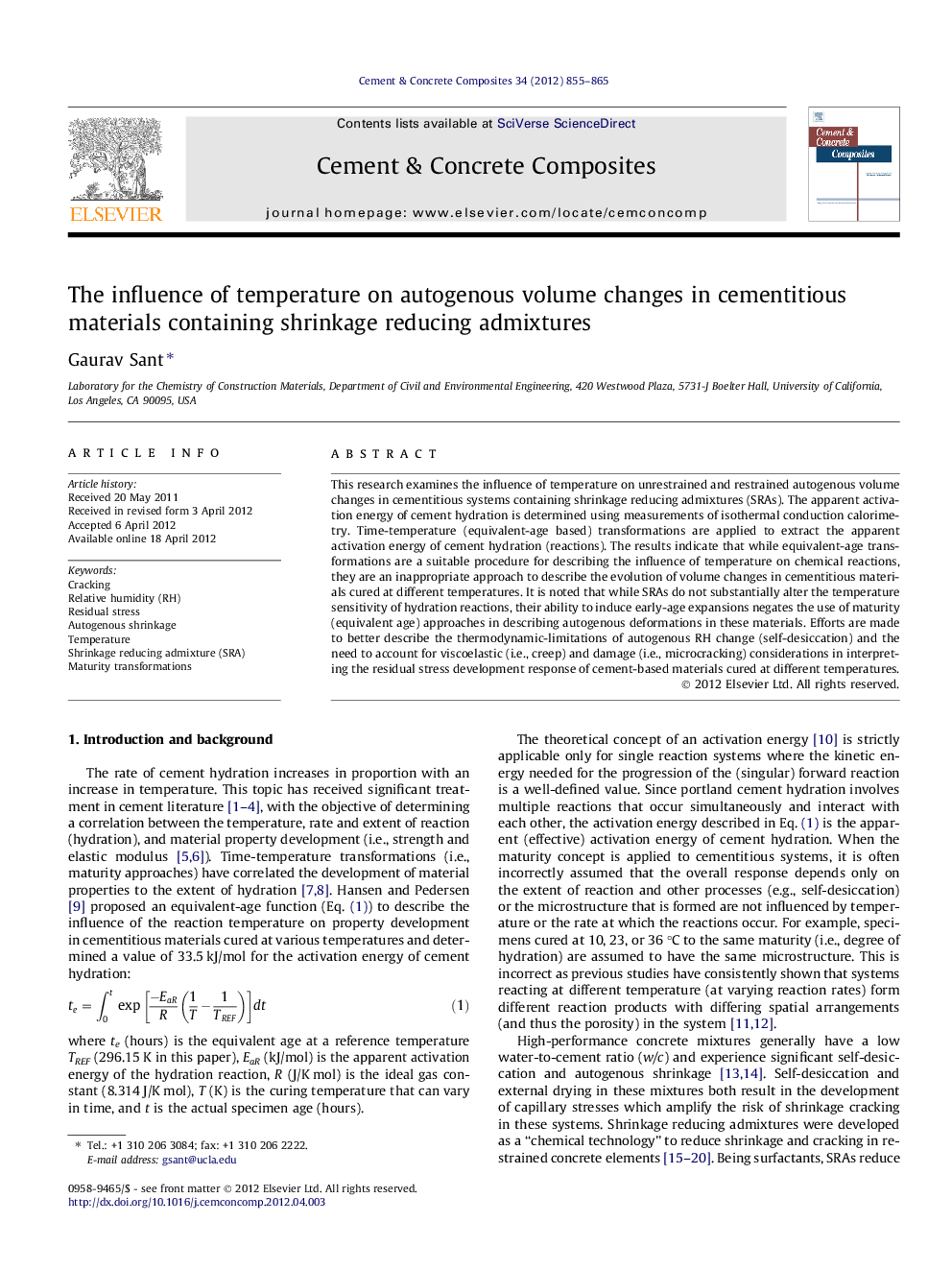| Article ID | Journal | Published Year | Pages | File Type |
|---|---|---|---|---|
| 1455146 | Cement and Concrete Composites | 2012 | 11 Pages |
This research examines the influence of temperature on unrestrained and restrained autogenous volume changes in cementitious systems containing shrinkage reducing admixtures (SRAs). The apparent activation energy of cement hydration is determined using measurements of isothermal conduction calorimetry. Time-temperature (equivalent-age based) transformations are applied to extract the apparent activation energy of cement hydration (reactions). The results indicate that while equivalent-age transformations are a suitable procedure for describing the influence of temperature on chemical reactions, they are an inappropriate approach to describe the evolution of volume changes in cementitious materials cured at different temperatures. It is noted that while SRAs do not substantially alter the temperature sensitivity of hydration reactions, their ability to induce early-age expansions negates the use of maturity (equivalent age) approaches in describing autogenous deformations in these materials. Efforts are made to better describe the thermodynamic-limitations of autogenous RH change (self-desiccation) and the need to account for viscoelastic (i.e., creep) and damage (i.e., microcracking) considerations in interpreting the residual stress development response of cement-based materials cured at different temperatures.
